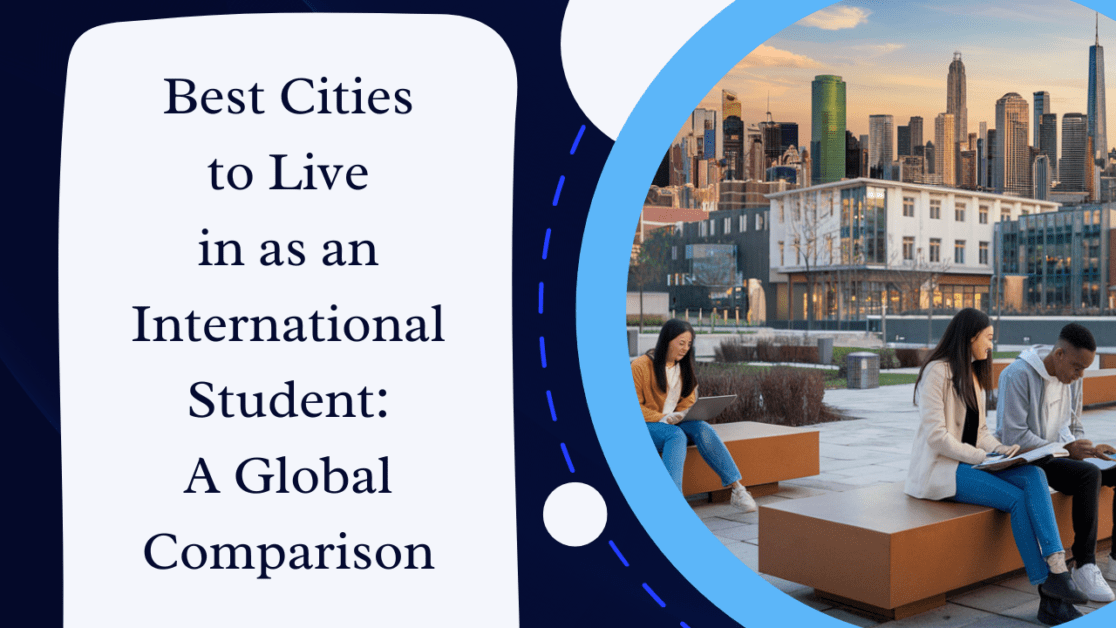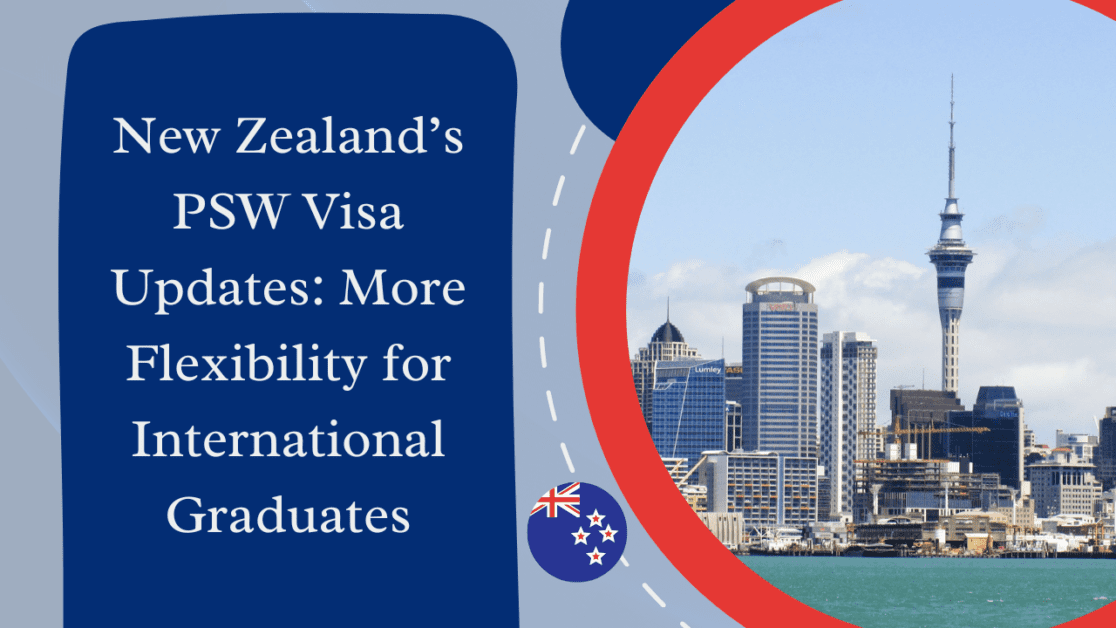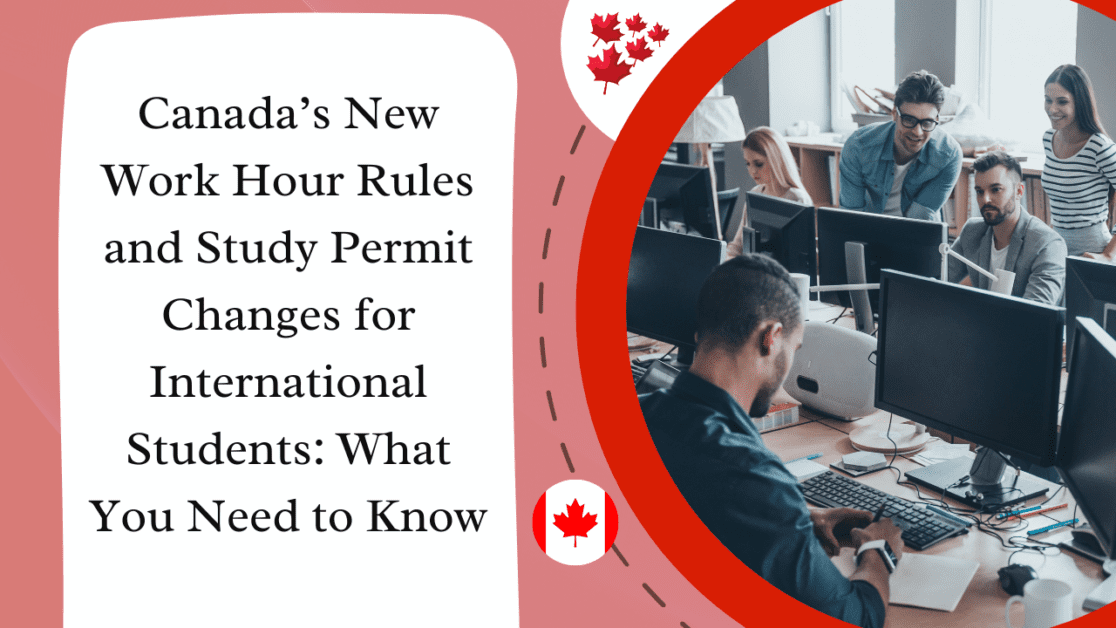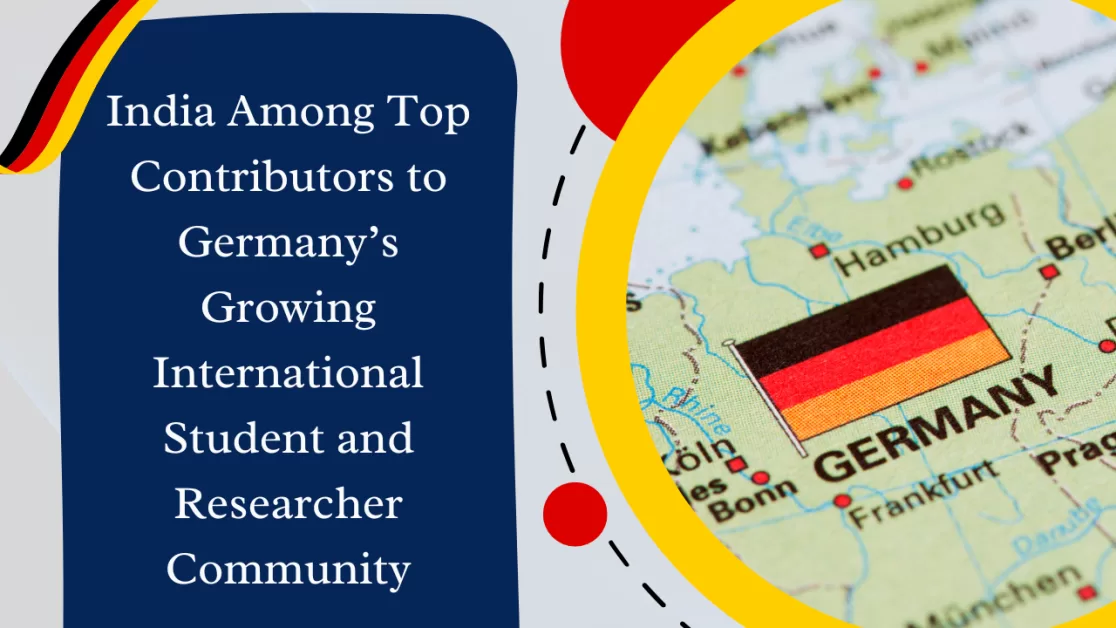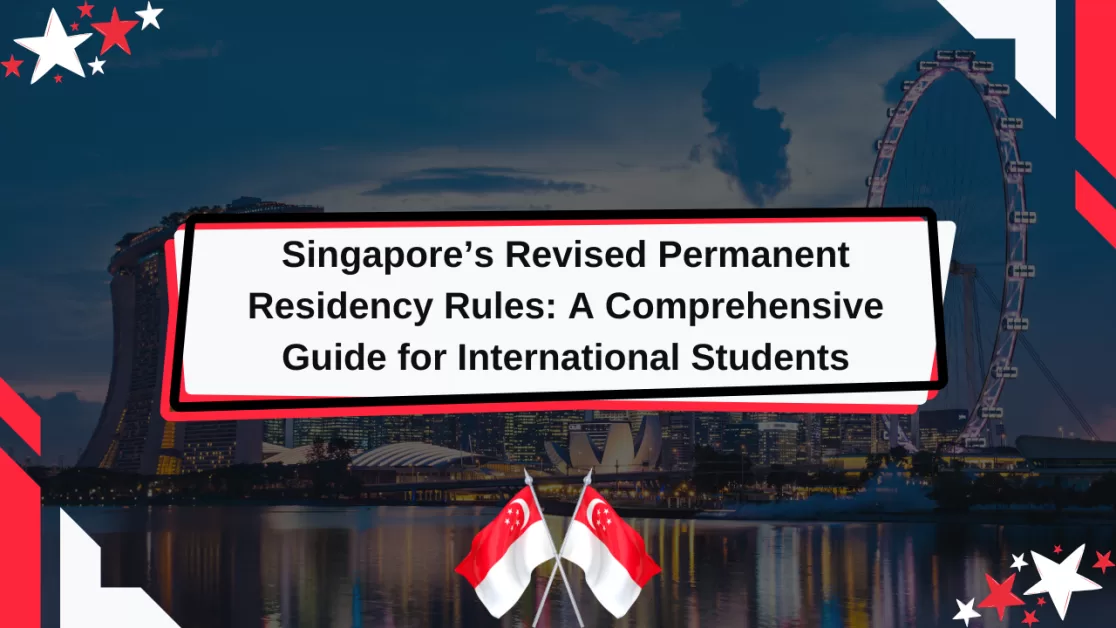
Singapore has recently introduced significant changes to its Permanent Residency (PR) regulations for international students, aimed at attracting more foreign talent and fostering a diverse, inclusive environment. These reforms are set to enhance Singapore’s reputation as a premier destination for global education and professional opportunities. Here’s an in-depth look at these new regulations, their implications, and why Singapore is becoming an increasingly attractive option for international students and their families.
Table of Contents
Key Changes in PR Eligibility Criteria
Streamlined PR Application Process:
- Under the new rules, international students holding a Student Pass can now apply for PR after completing at least one national examination or being enrolled in the Integrated Programme, bypassing the previous requirement of two years of study in Singapore.
- Eligible national exams include the Primary School Leaving Examination (PSLE), the GCE ‘O’ Levels, and the GCE ‘A’ Levels, making it easier for students from diverse educational backgrounds to meet the criteria.
Long-Term Visit Pass for Guardians:
- A significant change is the introduction of a Long-Term Visit Pass (LTVP) for one parent or guardian, regardless of gender. This policy allows parents to support their children during their educational journey in Singapore, providing stability and security for families relocating from abroad.
- The LTVP enables the guardian to stay in Singapore for an extended period, easing the transition for international students and allowing them to focus on their studies without the stress of separation from their families.
Focus on Talent Retention and Integration:
Singapore’s revised PR policies reflect a strategic shift towards retaining talent and fostering integration. By making it easier for students to attain PR, Singapore is positioning itself as an attractive long-term destination for skilled individuals who can contribute to its economy and society.
Enhanced Post-Graduation Opportunities:
With PR status, international students gain access to a broader range of employment opportunities, including jobs that are not available to non-residents. This boosts their career prospects significantly, enabling them to stay and work in Singapore after completing their studies.
Implications for Students and Families
Improved Academic and Career Prospects:
The relaxed PR rules provide international students with a clear pathway to establish their academic and professional lives in Singapore. This policy change is expected to increase the number of students opting to study in Singapore, given the added benefits of being able to stay and work in the country long-term.
Attractive Option for Indian Students:
For Indian students and families, the new LTVP rules for guardians make Singapore an even more attractive destination. It addresses common concerns about family support and safety, which are often critical factors in deciding on a study abroad destination.
Impact on Singapore’s Education Sector:
The eased PR rules are likely to boost the appeal of Singaporean institutions among top global students, enhancing the diversity and quality of its academic ecosystem. With these changes, Singapore is poised to become a hub for international talent in Asia.
Why Choose Singapore for Higher Education?
World-Class Institutions:
Singapore is home to some of the best universities in Asia, including the National University of Singapore (NUS) and Nanyang Technological University (NTU), which are consistently ranked among the top in the world.
Strategic Location and Economic Hub:
As a global financial and technological hub, Singapore offers a unique blend of Eastern and Western cultures, providing students with a vibrant, cosmopolitan environment. Its strategic location in Asia makes it an ideal place for students looking to explore the region and build a career in a dynamic economic landscape.
Safe and Inclusive Environment:
Known for its safety, cleanliness, and high standard of living, Singapore is one of the safest cities in the world. The country’s multicultural society also ensures that students from diverse backgrounds feel welcomed and integrated.
Strong Industry Links and Employment Opportunities:
Singapore’s strong links with global industries, especially in finance, technology, and biomedical sciences, provide ample employment opportunities for graduates. The new PR policies further enhance these prospects, allowing students to build successful careers in Singapore.
How to Apply for PR in Singapore
Eligibility Check:
Ensure you meet the revised criteria, such as completing a national examination like the PSLE, GCE ‘O’ Levels, or GCE ‘A’ Levels, or being enrolled in the Integrated Programme.
Document Preparation:
Gather necessary documents, including academic records, a valid Student Pass, and proof of examination results or enrolment in the Integrated Programme.
Application Submission:
Submit your PR application online through the Immigration and Checkpoints Authority (ICA) website. It’s advisable to carefully review all requirements and provide accurate information to avoid delays.
Awaiting Approval:
The PR application process can take several months, so it’s important to apply well in advance of your planned graduation or the end of your current visa.
Conclusion
The recent changes to Singapore’s Permanent Residency rules represent a significant step forward in making the country a more attractive destination for international students and their families. With a clear pathway to long-term residency, world-class educational institutions, and a robust job market, Singapore offers a unique combination of academic excellence and career opportunities.
Ready to explore? Start your visa application today and get one step closer to your adventure!
Don’t let uncertainties hold you back. Our team of expert overseas education consultants is readily available to assist you. Whether you have inquiries about:
Specific document requirements
Interview preparation tips
Visa application timelines
We’re ready to provide personalized guidance tailored to your unique situation. Get in Touch Today at: +919041818122 and begin your journey with Vrinda International.
The information provided in this blog is for general guidance purposes only. Visa policies, application procedures, and fees are subject to change without prior notice. For the most accurate and up-to-date details, we recommend contacting us directly or consulting official sources. Feel free to reach out to us for personalized assistance with your visa application or travel needs.
FAQ - Frequently Asked Question
1. What are the new PR eligibility criteria for international students in Singapore?
International students can now apply for PR if they have completed at least one national examination, such as the PSLE, GCE ‘O’ Levels, or GCE ‘A’ Levels, or are enrolled in the Integrated Programme. The previous requirement of studying for at least two years has been removed.
2. Who can apply for the Long-Term Visit Pass (LTVP) under the new rules?
A parent or guardian, regardless of gender, can apply for the LTVP to stay in Singapore and support their child during their studies.
3. What are the benefits of obtaining PR status for international students?
PR status offers better career prospects, access to more job opportunities, and the ability to stay and work in Singapore post-graduation. It also provides social and economic stability, allowing students to plan their futures in Singapore.
4. What documents are needed to apply for PR in Singapore?
You will need your academic records, a valid Student Pass, proof of completion of national exams or enrolment in the Integrated Programme, and other personal identification documents.
5. How does this policy change impact students’ families?
The introduction of the LTVP for one guardian provides families with more stability and support during the student’s educational journey, making Singapore a more viable option for international study.
6. How does this change benefit Singapore’s educational landscape?
These reforms are expected to attract high-caliber students, increase the diversity and quality of the academic environment, and contribute to Singapore’s long-term talent pool and workforce development.
7. How long does the PR application process take?
The PR application process can take several months, so it is advisable to apply well in advance of the expiry of your Student Pass or planned graduation.
8. Why is Singapore an attractive destination for international students?
Singapore offers world-class educational institutions, a safe and inclusive environment, and strong career opportunities in fields like finance, technology, and biomedical sciences. The new PR rules further enhance its appeal by providing a clear pathway for long-term residency.
9. Can students work while their PR application is being processed?
Yes, students on a valid Student Pass can work part-time up to 16 hours a week during term time and full-time during vacation periods. However, having a PR will expand the scope of employment opportunities.
10. Where can I get more information and assistance?
For personalized guidance and assistance with studying in Singapore or applying for PR, you can reach out to Vrinda International, who provide comprehensive support for international students and their families.
